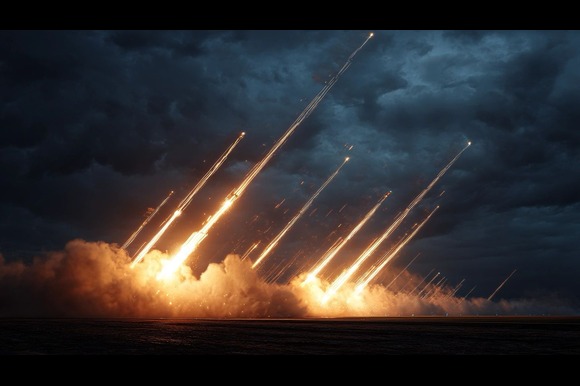In a dramatic escalation of regional tensions, Pakistan has launched “Operation Bunyan Ul Marsoos”, a coordinated military offensive targeting Indian military installations, in what it calls a “measured response” to India’s earlier Operation Sindoor. The offensive comes just weeks after a deadly terror attack in Pahalgam, Kashmir, that killed 28 civilians.

Pakistan’s Military Offensive
According to the Inter-Services Public Relations (ISPR), Pakistan’s military command authorized precision strikes on 25 Indian military sites across Punjab, Jammu & Kashmir, Rajasthan, and Gujarat. Among the key locations targeted were:
- Pathankot and Adampur Airbases (Punjab)
- Udhampur Military Base (Jammu and Kashmir)
- Bhuj and Jaisalmer (Rajasthan)
The strikes involved the use of Fatah-II ballistic missiles, armed drones, and precision-guided munitions. Pakistan claims to have successfully destroyed a BrahMos missile storage facility in Jammu and caused damage to air defense infrastructure in multiple zones.
Kashmir on Edge: Explosions and Civilian Toll
The Kashmir region witnessed a wave of explosions following the cross-border strikes. Blasts were reported in Baramulla, Kupwara, Poonch, and Rajouri, causing panic among civilians. Pakistani authorities in Pakistan-administered Kashmir reported at least 13 civilian deaths and over 50 injuries due to Indian retaliatory shelling.
Indian sources, meanwhile, confirmed limited damage at several airbases but denied the loss of high-value assets. Civilian casualties were also reported in Udhampur and Samba due to missile impact.
Background: What Triggered the Escalation?
The current confrontation stems from the April 22 Pahalgam terror attack, where 28 Indian civilians, mainly Hindu pilgrims, were killed. India responded on May 7 with Operation Sindoor, targeting what it described as terrorist launch pads in Bahawalpur, Muridke, and Muzaffarabad. That operation, conducted using Rafale fighter jets and SCALP missiles, reportedly eliminated over 100 militants.
Pakistan vowed to retaliate, calling India’s actions an act of “unprovoked aggression,” setting the stage for today’s large-scale retaliation.
Global Reactions
The United Nations, the United States, China, and the European Union have called for immediate de-escalation. U.S. Secretary of State Marco Rubio has spoken with both nations’ foreign ministers, urging restraint and offering to mediate.
The situation remains volatile as both nations maintain full combat readiness along the Line of Control (LoC) and international border.






